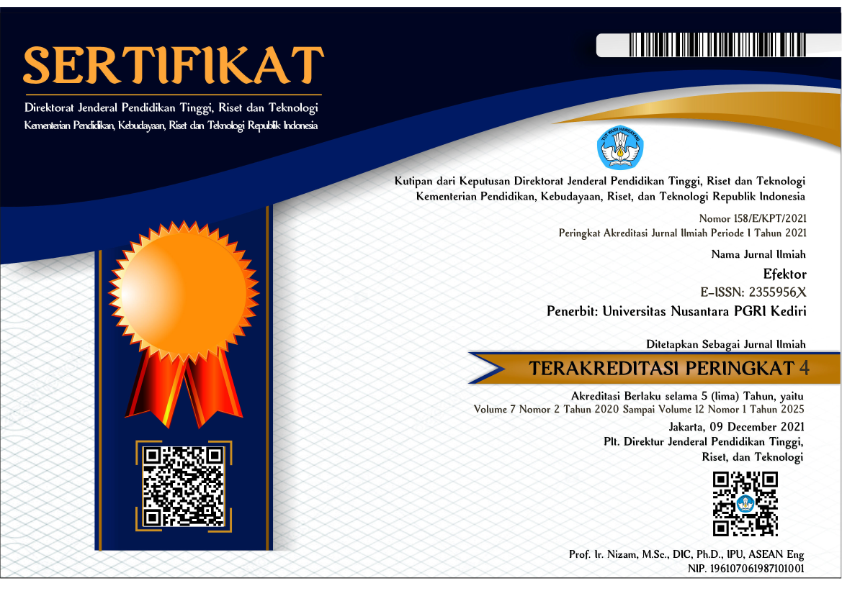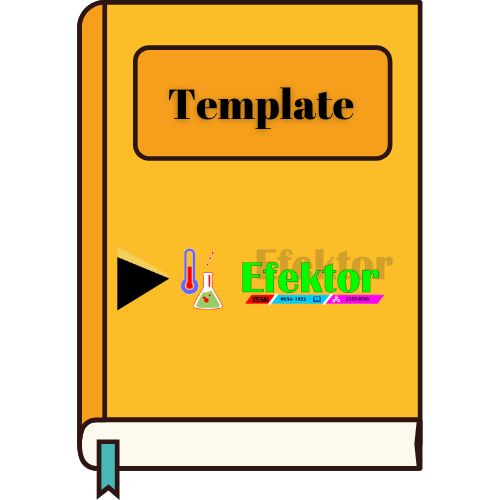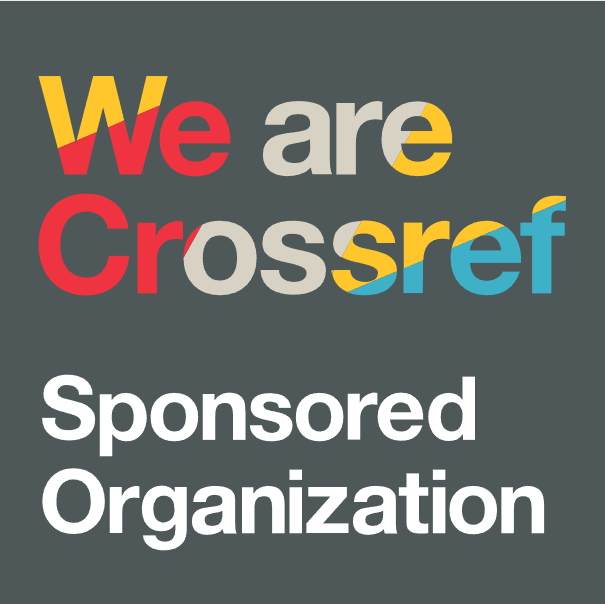Upaya Peningkatan Mutu Proses Dan Hasil Belajar Interaktif Melalui Penilaian Otentik Pada Mata Kuliah Teknologi Pembelajaran Bagi Mahasiswa S1 PGSD FKIP Universitas Bengkulu
DOI:
https://doi.org/10.29407/e.v5i1.11923Keywords:
Hasil Belajar Interaktif, Penilaian Otentik, Teknologi PembelajaranAbstract
This study aims to improve the quality of the process and the results of interactive learning through vocational studies Education Technology for undergraduate students PGSD FKIP UNIB. The method of research used class action in collaboration with lecturers model as a researcher. This research was conducted for three cycles. The results showed that learning achievement can effectively improve the quality of the learning process. The study found an innovative model of assessment by conditioned students to build their own potential for self-confidence to appear in the group, openness in accepting criticism, persistence in raising opinions of criticism and attendance as group members. With performance appraisal easier and able to improvise, while students are more proactive in participating.
References
Arikunto, Suharsimi. (2006). Prosedur Penelitian Pendekatan Praktik. Jakarta. PT. Rineko Cipta.
Kunandar. (2008).Langkah Mudah Penelitian Tindakan Kelas Sebagai Pengembangan Profesi Guru. Jakarta. PT. Raja Grafindo Persada.
Miarso, Yusufhadi. (2004). Menyemai Benih Teknologi Pembelajaran. Jakarta. Prekada Media.
Nurgiyantoro, B.. (2011).Penilaian Otentik. Yogyakarta. UGM. Press.
Rohani, Ahmad. (2004). Pengelolaan Pembelajaran. Jakarta. Rineka Cipta.
Raka Joni, T.. (2005). Cara Belajar Siswa Aktif serta Implikasinya Terhadap Sistem Pembelajaran. P2LPTK Ditjen Dikti. Depdikbud.
Richardson, J.S.. (2009). Reading to Learn in The Content Areas. Australia. Wadsworth Cengage Learning.
Idrus. (2011). Meningkatkan Hasil Belajar Mahasiswa PGSD. Jurnal Pendidikan Triadik. Bengkulu. Oktober.
Wardani, IGAK; Wihardit, K; dan Nasution, N.. (2002). Penelitian Tindakan Kelas. Jakarta. Universitas Terbuka.
Downloads
Published
Issue
Section
License
Authors who publish with this journal agree to the following terms:
- Copyright on any article is retained by the author(s).
- The author grants the journal, the right of first publication with the work simultaneously licensed under a Creative Commons Attribution License that allows others to share the work with an acknowledgment of the work’s authorship and initial publication in this journal.
- Authors are able to enter into separate, additional contractual arrangements for the non-exclusive distribution of the journal’s published version of the work (e.g., post it to an institutional repository or publish it in a book), with an acknowledgment of its initial publication in this journal.
- Authors are permitted and encouraged to post their work online (e.g., in institutional repositories or on their website) prior to and during the submission process, as it can lead to productive exchanges, as well as earlier and greater citation of published work.
- The article and any associated published material is distributed under the Creative Commons Attribution-ShareAlike 4.0 International License













